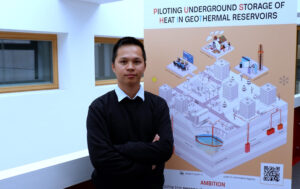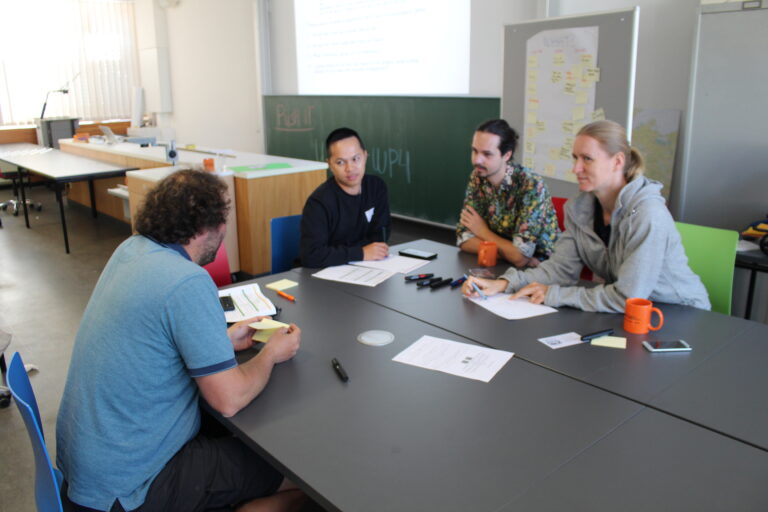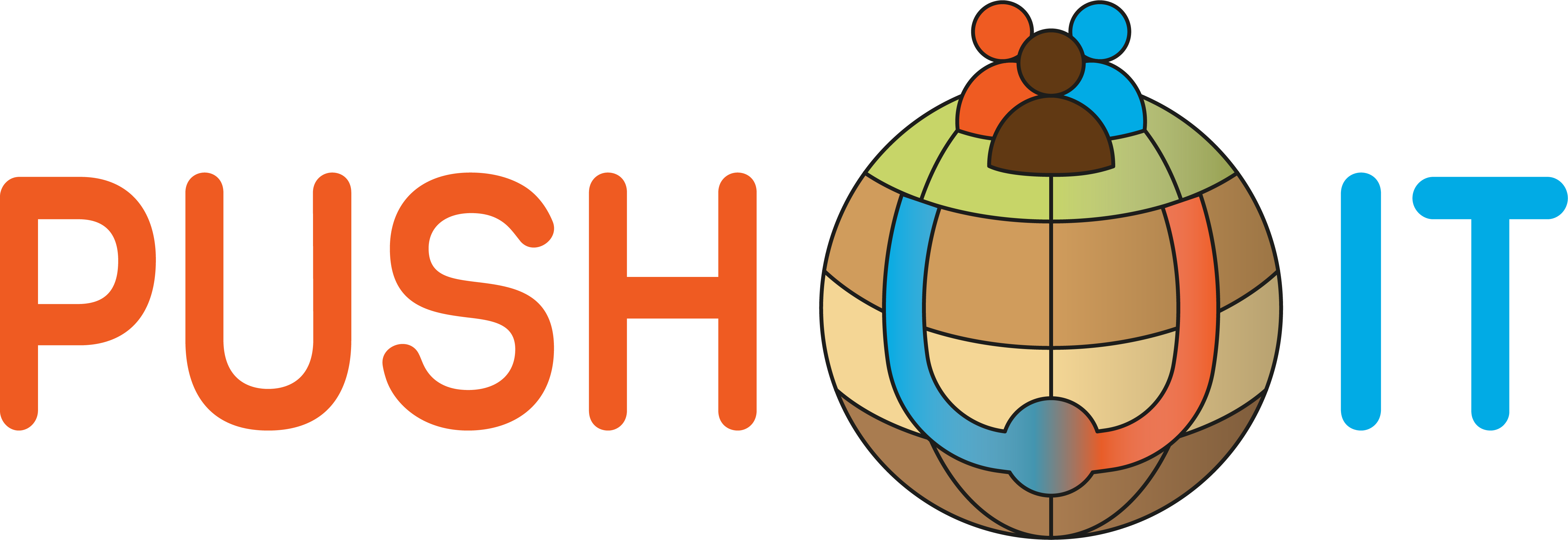Meet the scientist:
Hung Pham
(TU Darmstadt)

In October, PUSH-IT members gathered in Darmstadt. This General Assembly was organised by Hung Pham and his team. Let’s find out what they are working on!
Can you introduce yourself briefly and tell us about your background and area of expertise?
My name is Hung Pham, and on behalf of Professor Ingo Sass, I am the site leader for the Darmstadt demo site within the PUSH-IT project.
I started my academic journey with a bachelor’s degree in hydraulic engineering in Vietnam. After that, I came to Germany to study groundwater management. I then returned to Vietnam to complete my master’s degree and later came back to Germany to pursue a doctoral degree at TU Darmstadt.
My expertise lies in modeling, which I’ve been doing for more than a decade now. My works range from small-scale experiments to large-scale projects like underground reservoirs, or hydropower dams. I’ve always loved computers and programming, so working in modeling is a perfect fit for me. It combines my engineering background with computational work, which is something I really enjoy.
Besides modeling, I also handle project management. But, personally, I prefer to think of it as “problem-solving”. It’s about finding solutions to the challenges that arise during a project, which I find very rewarding.
Could you explain the focus and primary objectives of your current research?
Within the PUSH-IT project, our team at TU Darmstadt is focused on integrating a medium-deep borehole thermal energy storage (MD-BTES) consisting of three 750 meter deep borehole heat exchangers into the university’s district heating network (DHN) to demonstrate the technical feasibility and effectiveness of this technology. Moreover, the connection to the DHN will be done by testing an innovative method for constructing a district heating pipe network. Additionally, we aim to transfer our expertise to the follower site in Litomĕřice. Lastly, we plan to apply our Co-Simulation approach, which our team has developed over the past 10 years, to other demonstration sites within the project.
Why is your research important? Do you have personal drivers for tackling this topic?
I’m answering this question on behalf of the entire Darmstadt team. We are one of the first working groups in Germany to focus on geothermal energy. Geothermal energy is a crucial component of our green energy strategy. Without it, the energy transition in Germany won’t succeed. Here at Darmstadt, we are pioneering MD-BTES system, and our goal is to demonstrate that this technology is both technically and economically viable.
Text continues after the image.

What are the main challenges and questions you are working on?
As a team of scientists, our main challenge is turning our ideas into real-world applications. On a computer, it might only take few clicks, but in practice, it requires a tremendous amount of effort. Fortunately, we have the full support of our university, the government, and many other stakeholders, which makes overcoming these challenges possible.
Can you provide an update the current status of your work and your upcoming milestones? Do you have results already?
Currently, after some initial challenges, everything is going in a good direction. We have successfully drilled and completed the three 750 meter deep borehole heat exchangers, completed the geothermal response test, and the testing phase involving various heating and cooling cycles is underway. The engineering design for the connection pipeline with the heat pump and the heat transfer stations is nearly finalised. Soon, we will launch the tendering process, allowing construction to begin next year.
Looking forward, what do you envision in terms of innovation and societal impact, both locally and (inter)nationally, as a result of this project?
As a demonstration site for the geothermal energy storage concept, the project’s success will attract attention from stakeholders and potential investors. Locally, for TU Darmstadt, the success of PUSH-IT might influence TU Darmstadt’s future energy strategy in several ways. If the technology proves effective, discussions will begin on expanding from three up to 37 boreholes. Additionally, site visits offer for example valuable insights, inspiring many motivated individuals to pursue studies in the field of geothermal energy.
Click here to learn more about the Darmstadt pilot site.

PUSH-IT is a project funded by the European Union’s Horizon Europe research and innovation programme under grant agreement No 101096566.
Funded by the European Union. Views and opinions expressed are however those of the author(s) only and do not necessarily reflect those of the European Union. Neither the European Union nor the granting authority can be held responsible for them.
